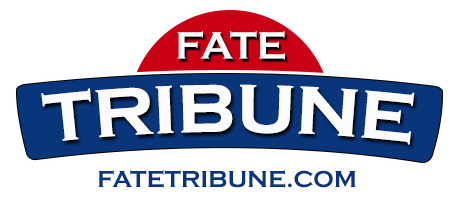Fate, TX – The City of Fate will hold a special council session on January 27, 2025, to consider a contentious amendment to its Unified Development Ordinance (UDO) Article VIII: Signage. Proposed by Ryan Wells, Director of Planning & Development Services, the changes would impose strict limitations on temporary signage, potentially harming local businesses and the city’s reputation as a business-friendly community.
Key Details of the Proposal
The ordinance seeks to impose the following restrictions:
- Limiting permits for temporary signs to 30 consecutive days, with a maximum of two permits per year per business or entity.
- Requiring a 20-day waiting period between permits.
- Imposing stringent placement rules, including a 30-foot buffer from intersections and a prohibition within 10 feet of sidewalks, curbs, or driveways.
- Introducing fines of up to $2,000 per day for violations.
While city staff claim the measures are necessary to “protect sight lines” and improve safety, the proposed changes lack evidence of any widespread problems caused by temporary signs.
Impact on Local Businesses
Fate’s small businesses, which often rely on temporary signage for visibility and advertising, would bear the brunt of these new regulations.
Consider a new bakery hosting a grand opening or a plant nursery promoting seasonal specials. These businesses depend on temporary signs to capture the attention of potential customers, especially in a small city where community engagement drives foot traffic. Under the proposed rules, their ability to advertise would be severely curtailed, reducing opportunities to grow and sustain their customer base.
The waiting period between permits further exacerbates the issue, creating gaps in advertising that could hinder businesses trying to maintain consistent outreach to the community.
Economic Implications
The ordinance also raises questions about its broader economic impact. By restricting temporary signage, the city risks discouraging entrepreneurship and stalling growth. Small businesses are a cornerstone of Fate’s economy, and measures that increase regulatory burdens could deter future investments in the community.
Furthermore, the proposal does not include a financial analysis, leaving residents and business owners to wonder about the cost of enforcement. Will additional resources be allocated to monitor compliance, or will businesses and property owners face the brunt of enforcement costs?
Unclear Justifications and Unintended Consequences
The city’s justification for the proposal focuses on safety concerns, such as blocked sight lines at intersections. However, these issues could likely be addressed through more targeted and less disruptive measures, such as enforcing existing rules or educating the community about proper sign placement.
The ordinance’s broad language also opens the door to arbitrary enforcement. For instance, the determination of what constitutes a “hazard to public safety” is left to the discretion of the city administrator, creating potential for inconsistent application.
The Path Forward
The Fate City Council must consider the far-reaching consequences of this proposal. Restricting temporary signs could undermine the city’s small businesses, harm the local economy, and complicate enforcement efforts.
Instead of imposing blanket restrictions, the city should explore alternative solutions that address specific safety concerns without placing unnecessary burdens on businesses. Options might include enhanced public education on sign placement or targeted enforcement of current regulations.
Residents and business owners are encouraged to attend the council meeting on January 27 to voice their concerns. Protecting the vibrancy of Fate’s business community should be a top priority, and this proposal risks doing more harm than good.
By working together, Fate can find balanced solutions that support both safety and economic vitality. Let’s ensure that progress in our city doesn’t come at the cost of its entrepreneurial spirit.
